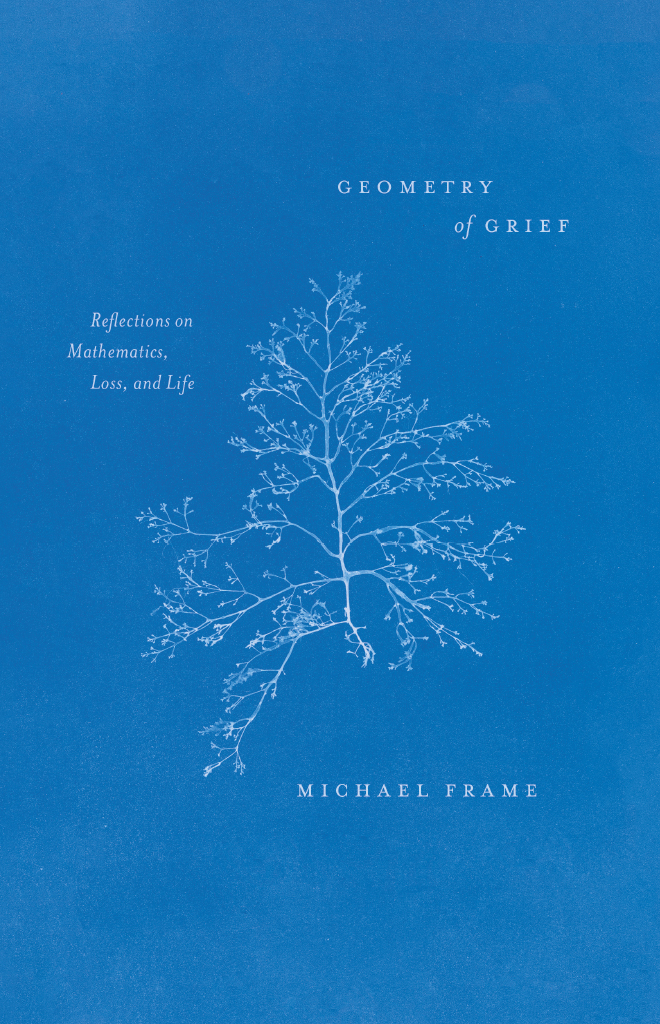
Geometry of Grief
Geometry of Grief
Reflections on Mathematics, Loss, and Life
Michael Frame
The University of Chicago Press
Chicago and London
The University of Chicago Press, Chicago 60637
The University of Chicago Press, Ltd., London
2021 by Michael Frame
All rights reserved. No part of this book may be used or reproduced in any manner whatsoever without written permission, except in the case of brief quotations in critical articles and reviews. For more information, contact the University of Chicago Press, 1427 E. 60th St., Chicago, IL 60637.
Published 2021
Printed in the United States of America
29 28 27 26 25 24 23 22 21 20 1 2 3 4 5
ISBN-13: 978-0-226-80092-9 (cloth)
ISBN-13: 978-0-226-80108-7 (e-book)
DOI: https://doi.org/10.7208/chicago/9780226801087.001.0001
Library of Congress Cataloging-in-Publication Data
Names: Frame, Michael, author.
Title: Geometry of grief : reflections on mathematics, loss, and life / Michael Frame.
Description: Chicago : University of Chicago Press, 2021. | Includes bibliographical references and index.
Identifiers: LCCN 2021007566 | ISBN 9780226800929 (cloth) | ISBN 9780226801087 (ebook)
Subjects: LCSH: Fractals. | Grief. | Geometry. | MathematicsSocial aspects.
Classification: LCC QA614.86 .F796 2021 | DDC 514/.742dc23
LC record available at https://lccn.loc.gov/2021007566
 This paper meets the requirements of ANSI/NISO Z39.48-1992 (Permanence of Paper).
This paper meets the requirements of ANSI/NISO Z39.48-1992 (Permanence of Paper).
Contents
Dad, thats really scary.
Look for the very brightest one in the sky.
Beside the tree, about halfway up? Is that it, Ruthie?
Thats it. Thats Venus. Its a planet, a whole world, almost as big as the earth. And its cloudy all the time. No one has ever seen land on Venus.
If its cloudy all the time, Venus must be cold.
Not necessarily. Venus is closer to the sun than Earth is. Maybe the clouds hold in the heat and its very hot there.
Oh, I see. The sky is clear tonight, so well get cooler than we would if it was cloudy.
Thats right, Mikey. Do you want to go inside now?
Are there other planets in the sky?
Not tonight.
Can we stay outside and watch lightning bugs?
Sure.
This was an evening late in the summer of 1958. The sky, purple deepening to indigo, showed a few pinpoint stars and a much brighter dot, Venus. Wed had dinner with my grandmother and my Aunt Ruthie, my dads sister, at their house in South Charleston, West Virginia. I was seven, my sister Linda was four, our brother Steve was two. Only Ruthie and I were in the backyard. The others were on the front porch, visiting, Mom called it. We lived in St. Albans, West Virginia, only about eight miles away, and saw my grandmother and Ruthie often. Just why the adults visited wasnt clear to me. What could they talk about? They just gossiped about their neighbors and other family members.
Ruthie and I were different. That afternoon wed sat in the kitchen garden, and the purposeful march of ants and the random jumps of grasshoppers entranced us. I constructed elaborate natural histories to explain their behaviors; Ruthie proposed much simpler alternatives. She never used the term Occams razor, but she had begun to teach me the beauty of simple explanations. And also the likelihood of economy: a Rube Goldberg machinea complicated contraption that takes up a whole room and performs a simple task like cracking an egghas many points of potential failure. My complex pathways were good mental exercises, maybe, but did I really think nature would be that silly? Years later, I understood that Ruthie had started me on the path to becoming a scientist. She thought curiosity is the most important trait of the mind; that the curiosity of a child, the twists and turns of young logic when the child unpacks aspect and dynamic of the wide world, is the most beautiful thing an adult can see. Mom and Dad, grandparents, other aunts and uncles, encouraged curiosity, but Ruthie cultivated it, mixed in some skepticism, and always found a book for me to read about the topic of current interest. Ruthie set me on the way that, sixty years later, has led me to write this story.
In elementary school career discussions, against my classmates police officer, firefighter, and park ranger (astronaut wasnt a career thenyes, Im ancient), I offered physicist or mathematician or astronomer. But really, at that age every kid is a naturalist. A summer morning in neighboring woods revealed wonders without end. The optimism of childhood knew no bounds. My parents finances, though limited, afforded opportunity for creative explorations. To measure the output of a thermocouple (a copper wire and a steel wire twisted together that convert heat into a weak electrical current), the father of another student bought an expensive multimeter. I made a galvanometer: two magnetized needles stuck through a small cardboard rectangle suspended by thread in a coil of wire. Who had more fun detecting the tiny current?
Ruthie didnt help me design the experimentsDad did that, and let me set up a small lab in a corner of his workshopbut Ruthie helped me realize that I could do experiments and answer some of my own questions.
Late in my eleventh year, Ruthie got sick. Hodgkins lymphoma, survivable now but not so much in the early 1960s. She was treated, with the chemotherapy drug Mustargen, I believe, but lived only a few more months in some misery and died early in my twelfth year. I visited Ruthie when she was sick, but I couldnt do much. I stood beside her bed, rested my little hand on her forearm and tried to talk with her. But I couldnt think of anything to say. At home after these visits, Mom hugged me, stroked my hair. I knew I should have talked more with Ruthie. She had done so much for me, and she needed me now. She needed me to talk with her because I was her favorite. Later I understood that Mom was working through her own grief. She knew the situation far better than I did, knew this disease would win and Ruthie would lose. Dad began to talk with me about his sisters illness. He was straightforward: Ruthie was going to die. I appreciated his honesty. No nonsense about Ruthie going away, orworsegoing to live with the angels. Her life would end, and soon. This isnt fair. Theres so much more for Ruthie and me to do. She promised wed get a telescope to look at the planets. Ive saved my allowance for six months already. This just isnt fair.
Son, life isnt fair. Ruthie isnt sick because she did anything bad. She just got sick. Sometimes good things happen, sometimes bad things happen. All we can do is try to make a few more good things happen and a few less bad things happen. But a lot of things that happen to us, we cant do anything about.
Dad, thats really scary.
Yes, son, it really is.
That night I thought of a plan. Id work very, very hard. Study all the time, no more hide-and-seek or silly stories told to little kids. Id finish high school years early, go to college, then graduate school and medical school, become a medical researcher, find a cure for Hodgkins lymphoma, administer it to Ruthie, and save her. In one version of the fantasy, I flew in a helicopter from my university laboratory to Ruthies hospital. I was so pleased with my plan. I told Mom and said Id tell Ruthie not to worry, that Id save her. I expected Mom to be happy, but she looked very sad, told me I couldnt tell Ruthie.
Why not? Dont you want her to know shell be alright?
Next page
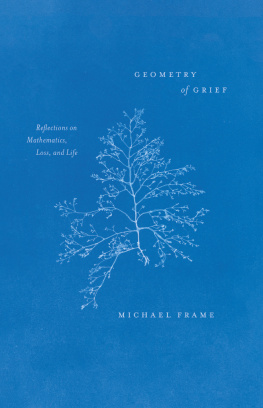
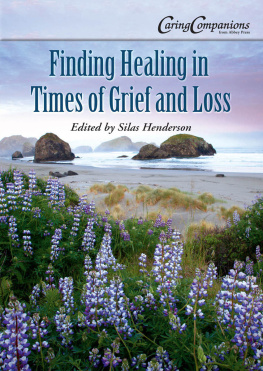
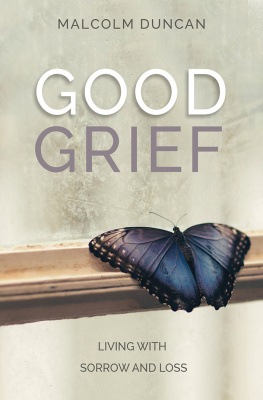
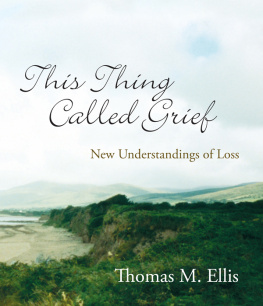
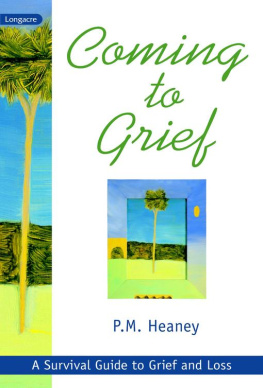


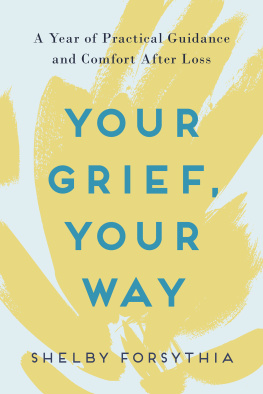
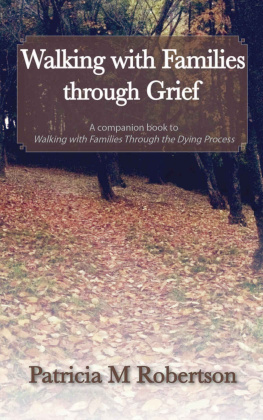
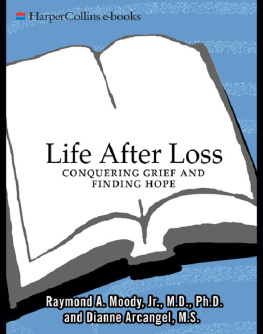

 This paper meets the requirements of ANSI/NISO Z39.48-1992 (Permanence of Paper).
This paper meets the requirements of ANSI/NISO Z39.48-1992 (Permanence of Paper).